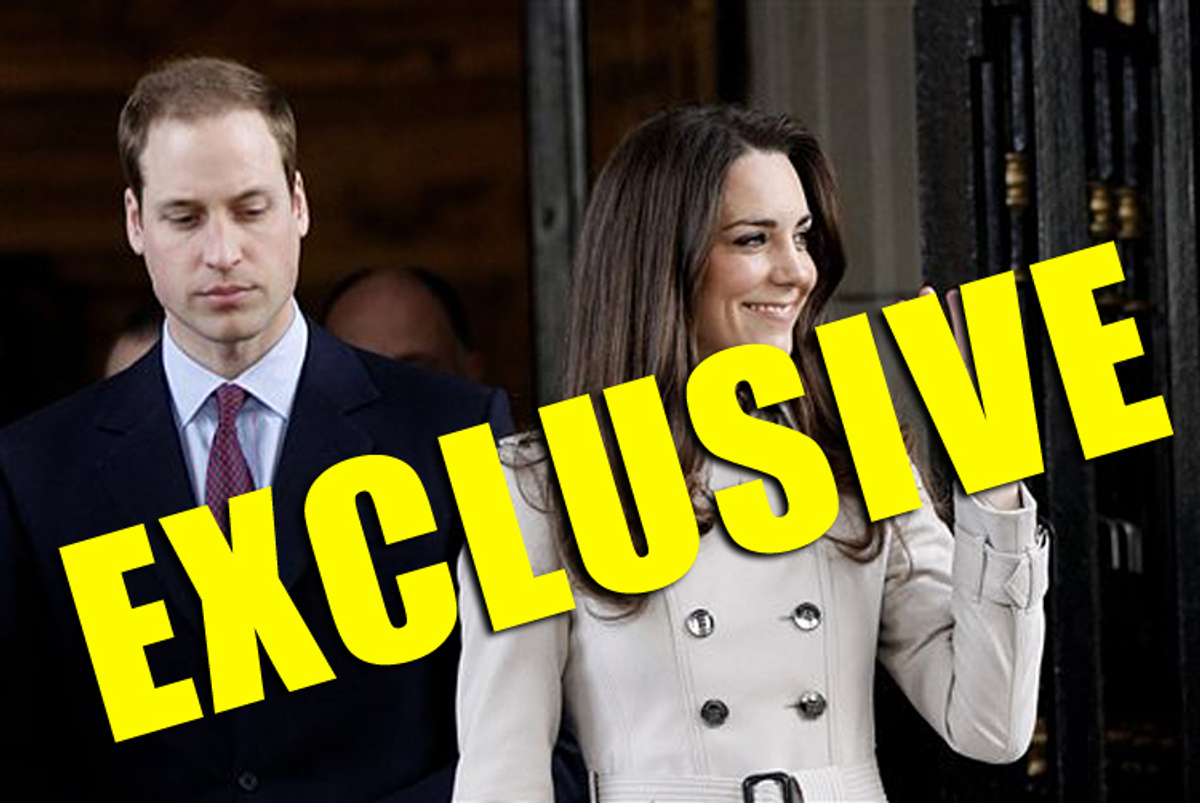Probably since Gutenberg developed the printing press -- and certainly since the dawn of television -- there's been a chicken-or-egg debate about the mass media: Do content creators shape their product to reflect what the audience already wants? Or do content creators shape their product to reflect their own personal interests, and then force-feed that product to the audience?
Though it's likely a fluctuating combination of the two, it's never a perfectly balanced mix. In the sculpting of what we read, hear and see, either the audience's desires or the content creators' proclivities play a lead role -- and now, thanks to the British royal wedding, we can definitively show it is the latter.
Let's start with what the audience wants -- or does not want. According to a new New York Times/CBS poll, just 6 percent of Americans have been following the buzz about Prince William and Kate Middleton's nuptials. This is in line with an earlier "60 Minutes"/Vanity Fair survey finding that "65 percent of Americans have no interest in Prince William's pending marriage and only a small minority are paying attention," according to Reuters.
Now compare this public opinion data with the vast resources that major American media outlets are spending to send teams of reporters to cover the wedding in 24/7 breaking-news fashion. Indeed, the American media is so uninterested in what the American audience wants that Nielsen this week reported that U.S. media outlets are devoting exponentially more coverage to the royal wedding than the British themselves.
The numbers paint a portrait of top-down propaganda: Americans care even less about the wedding than the British do, but the American media has nonetheless decided to cover the wedding far more extensively than the British media.
The data provides significant insights into the creation of "news" -- insights that go beyond the understanding that the American media has now fully embraced the old royalty-obsessed tabloid ethos. That's been obvious for a long time. So has the fact -- confirmed by this data -- that a lot of "news" is today manufactured by a media establishment that's utterly out of touch with and/or uninterested in the mass audience.
But, through the ubiquitous, audience-defying coverage of the royal wedding, we also learn that "newsworthy" now truly means "anything related to the worship of very rich people." In some sense, that's no surprise -- the establishment media celebrating the taxpayer-subsidized British royal family is the same establishment media that continues to bill taxpayer-subsidized bankers as great American heroes. This is the same establishment media that insists it's tough to live on $300,000 or even $500,000 a year and the same establishment media that didn't flinch when votes for the Wall Street bailout were likened to the courageous votes for civil rights in the 1960s. I could go on, but you get the point -- a media dominated by six- and seven-figure salaried reporters is now organized around the deification of nine- and 10-figure wealth -- and no humans better epitomize such largesse than the British monarchy.
We also learn that media executives' standard response to criticism of its news decisions -- "We'd like to cover that foreign war but we don't have resources for stories the audience may not be interested in" -- is a steaming pile of horseshit. At a moment's notice, every major American media outlet has had no problem mustering the huge resources necessary to instantly dispatch massive teams of reporters to London for a story most Americans don't care about. That means every major American media outlet was capable of, say, better investigating WMD claims in the lead-up to Iraq, and it also means every major American media outlet is capable of better covering the casualties piling up in Afghanistan.
But "capable of" is different from "willing to," and the wall-to-wall coverage of William and Kate prove it's always been a matter of will -- or lack thereof.

Shares